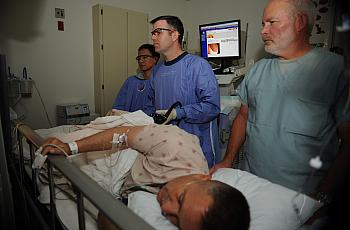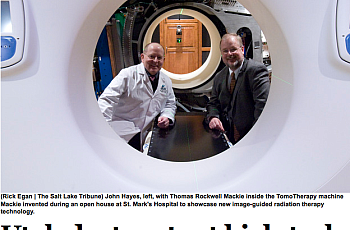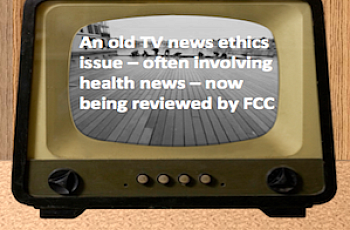
Gary Schwitzer
Publisher

Publisher
Gary Schwitzer has specialized in health care journalism for nearly 50 years. He is founder and publisher of the website HealthNewsReview.org, once leading a team of about 50 people who graded daily health news reporting by major U.S. news organizations, and who also graded health care PR news releases. The project won a Knight-Batten Award for Innovations in Journalism. For nine years he taught health journalism and media ethics at the University of Minnesota. He is now an Adjunct Associate Professor in the university's School of Public Health. Gary worked in television medical news for 15 years – including being in charge of the CNN medical news unit.
The Kaiser Family Foundation published his 2009 report on the state of U.S. health journalism. In 2010, he wrote “Covering Medical Research: A Guide For Reporting on Studies” for members of the Association of Health Care Journalists (AHCJ).
His articles on health journalism have appeared in many different publications, including the Columbia Journalism Review, Nieman Reports, the Poynter.org website, the Journal of the American Medical Association, JAMA Internal Medicine, BMJ, PLoS Medicine, and the newsletters and websites of the Association of Health Care Journalists and of the American Society of News Editors.
He has led health journalism workshops at 10 consecutive AHCJ national conferences, at the NIH Medicine in the Media series, at the MIT Medical Evidence boot camps, and internationally for National Cancer Institute (NCI) workshops in Rio de Janeiro, Guadalajara, San Juan, Beijing, and in New Delhi and Mumbai, India.
He gave a keynote address at the International Shared Decision Making conference in Lima, Peru in 2013 and delivered a plenary address at the National Medicines Symposium in Brisbane, Australia in 2014.
In 2014, he was named one of 25 Champions of Shared Decision Making by the Informed Medical Decisions Foundation. Also in 2014, the American Medical Writers Association honored him with the McGovern Award for preeminent contributions to medical communication. In 2016, Rodale, Inc. named him to its inaugural “Rodale 100″ list of “innovators who are changing the face of the health and wellness universe.”

<p>Continued miscommunication about findings from observational studies is drawing continued criticism from a growing number of observers. Journalists: observe and learn.</p>

<p>Headlines matter. And you can’t have it both ways: one saying “reduces death” and another saying “isn’t saving lives.” Screening messages are confusing enough for the general public; journalism shouldn’t make it even harder to decipher.</p>
<p>A new analysis shows how commonly doctors don't understand cancer screening statistics. That's no excuse for journalists not to do a better job in learning the basics and educating their readers, viewers, and listeners.</p>

<p>The Health News Watchdog analyzes 6 stories on 2 studies in the New England Journal of Medicine. Learn from the variation and from what was missing in most of the 6.</p>

Like our HealthNewsReview.org project, this Canadian project offers a list of industry-independent experts - and more.
<p>Some things to think about before we promote celebrity health care stories. Think about the uninsured in the audience. Are they supposed to pray for a miracle when they see this?</p>

<p>Because, in a nutshell, we find them all the same way – online. We don’t get ink on our fingers by reading a dozen or more newspapers every day. We – like an increasing number of people around the world – get our news online where blogs look just like stories from the newspaper, where business of health stories pop up just as consumer health stories pop up, where no caveats or mastheads appear saying:</p>

<p>Kudos to reporter Kirsten Stewart of the <em>Salt Lake Tribune</em> for showing how to avoid local boosterism – so often seen when the local health care industry makes an announcement. </p>

<p>In just 5 days, we've blogged about 3 distinct media ethics issues - all potential threats to a well-informed public discussion on health care and health care policy.</p>

<p>If anything, the FCC proposal may not go far enough.</p>